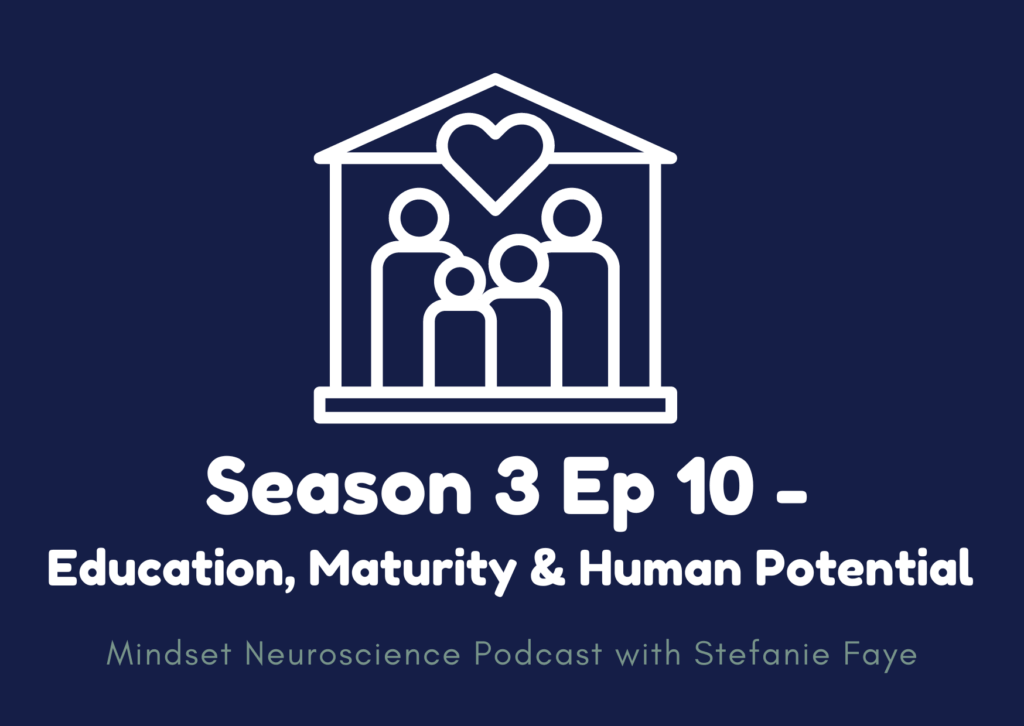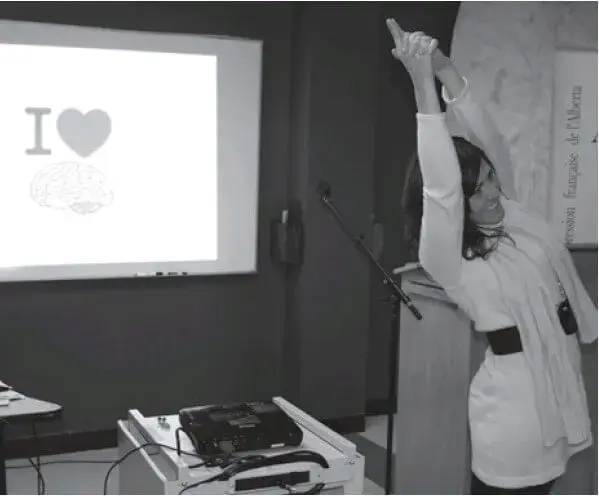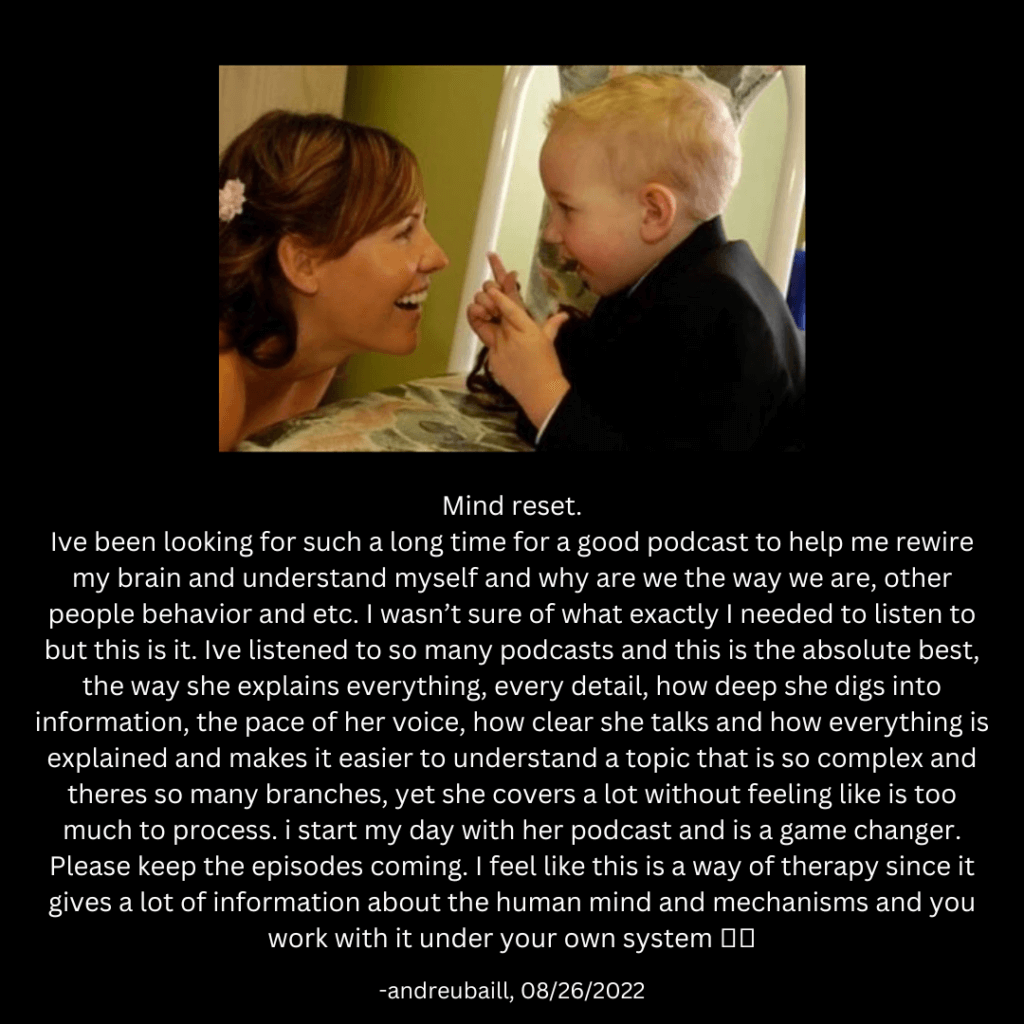
Because of how human brains develop, the only way for maturity to emerge is in the presence of maturity.
I remember the first time I gave a presentation to parents, many years ago, about how children’s brains develop.
One of the first concepts I introduced was the fact that young brains simply have not developed enough architecture to help them self-regulate, think about long-term consequences, control many of their impulses.
As I showed graphs and had the parents reflect on various experiences, I remember seeing tears in the eyes of a few people. They realized that a lot of their upset with their child had come from a misunderstanding of what the child needed in moments of distress. They realized that they were punishing their child for being dysregulated. (this is called misplacing emotions, and I go into this in this episode) Their anger and punishment seemed to make things worse but they couldn't figure out why. Understanding brain development shifted how they saw their child.
Instead of seeing them as a jerk who was trying to piss them off, they saw their child as someone who didn’t know what to do with overwhelming emotions. I had many parents report improvements in their interactions with their children after understanding this.
It also gave them compassion for what they had gone through as children. Many of them realized that they also had been rejected, ridiculed or punished for being dysregulated. It gave them a new understanding of their own childhood experiences.
Knowing how our brains and nervous systems develop helps us see a universality to human needs.
A sense of safety comes from knowing that someone understands us on a deeper level - that they can see through the dysregulated and defensive behaviors we might express when we don't know what to do with our emotions. This is the essence of secure attachment. One of the most important and intensive trainings I had as a school counselor was through the Neufeld Institute. We discuss the importance of Neufeld’s frameworks on attachment and maturity in the interview and I explore these teachings in the introduction.

This picture is from when I worked as a French school counselor in Canada
We go into these topics and more in my interview in Episode 10 with Noor Sayed, where we cover the idea of adult-child ratios, what education is for, systems thinking and the importance of presence and attachment.
We also discuss the neurological (and mammalian) mechanism of play as a simulation for adaptive behavior. By play, I mean some of the things we usually associate with play (like games, playfulness, sports, rough & tumble play), as well as role play. Something I have done a lot with children over the years is role play for social situations, where we use dolls or just the children themselves (and me) to play out scenarios of social and emotional challenges, such as being rejected or not getting something we want. By practicing different responses and trajectories within these simulations and role plays, this allows for flexible responding features of the brain-body system to be more readily accessible in 'real life' scenarios.
Noor is the founder of a homeschooling coaching and consulting program - Leaders Among Mothers - an insight-based framework for helping parents use the platform of teaching, leading and modeling as a journey of their own maturation and self-leadership.
In our conversation, we reflect on the purpose and philosophy of education - and how many forms of education distort or disrupt true learning processes.
We discuss the constraints of traditional, factory-model schools and how they limit our ability to truly see and know our children. We also explore how our own presence and attunement makes us better at seeing the brilliance of children, what they are truly capable of, and what will lay the foundation for them to become responsible citizens in this world, capable of honoring themselves, their values and integrity, while contributing a mature and regulated presence within society and their social circles.
A big part of her focus (which we talk about in the episode) is how adults must take accountability for how they show up in their own lives, and in the presence of others, in order to cultivate the developmental conditions needed for children to learn and mature. Both Noor and I were inspired by teachings on this from the Neufeld Institute, which has a focus on attachment and the developmental process of maturity.
It was a beautiful conversation that I feel deeply honors the children of our world. They need us to invest in understanding what they need, and how much brillant potential lies within them, waiting to emerge. This is about cultivating a garden, fostering and nurturing the right conditions for them to reach their highest heights. They are unable to explain this or understand this for themselves. We are now in a new era of knowledge transfer, something that didn’t exist in previous generations. Previous generations relied much more on what they had been modeled or what they experienced. We now have access to unlimited perspectives and ‘cumulative knowledge’*. It’s our responsibility to use these technological tools wisely and intentionally in order to share wisdom that will help us create the conditions for the incredible intelligence of our species to emerge.
*cumulative knowledge is another powerful aspect of human collective intelligence, which requires the ability to represent our understandings in graphical and shareable formats (such as reading, writing and images)
Our society today lacks maturity.
By maturity, I don’t mean a judgment that is negative. We are all on a journey of maturation... Maturity is an emergent process that helps us access self-regulating and executive functioning features of the human mind-brain-body system. There’s no end point of maturity. It’s a dynamic process of complexifying our ability to get our own needs met, while also being able to contribute to social bonds and relationships.
The tricky thing with us humans, however, is that because we are so complex, we take a LONG time to mature. What this means for us is that we have less pre-programmed features, and more flexibility to build our brains and algorithms for adapting to life based on what happens to us and around us during our earliest years. We outsource features of maturity so that our brain-body system can focus on basic pillars of survival while customizing us to certain aspects of our environment.
What this also means is that if we don’t have mature humans around us who have already established some of that more complex machinery, we will not have the developmental conditions needed for us to truly develop high levels of maturity. As we are building our brains, the humans around us need to not only be self-regulating, they also need to be able to hold their own perspective and another human’s perspective in mind so that they can attune to what is needed for the vulnerable beings we call children.
Teenagers can’t raise teenagers into maturity
This maturation process is particularly sensitive in the early years, but the networks associated with self-regulation executive functioning (two pillars of maturity) continue to develop into our mid-20s. This means that teenagers also need mature humans around them to continue building their neural networks for maturity. The internet is not a mature human. Other teenagers are not mature humans. Many grown-ups who have mental health issues or other challenges are also lacking in many of the micro-behaviors that relate to maturity. Many systems and structures young people are engaged in such as social media and schools have only one adult for 20-30 (at least!) young people, or no adults helping to guide discussions or behavior . This means that a high percentage of emerging human behavior is occurring in conditions that do not promote maturity.
Mental health and maturity are interconnected.
So much of what is tied to mental health is tied to the maturation process - the developmental journey of learning how to self-regulate, stay true to one's own integrity, to know one holds value, and to integrate into social dynamics and relationships, holding more than one's own perspective. These are aspects of the developmental journey towards maturity. The more we understand and cultivate the conditions for this, the more we will address many root causes of mental health challenges.
Immature reactions and thought processes activate emotions that pull us away from logic, reasoning, complexity, cognitive flexibility and systems thinking. Complexity, reasoning and cognitive flexibility may sound cold and loveless, but in fact the opposite is true. Engaging in long-form types of thinking that expand our minds into seeing how systems interconnect and how to foresee the future as it connects to our past... these are the types of thinking that will help us create a better society for all.
Maturity and mental health are fostered through Families and small social circles that focus on creating social-emotional, loving and safe experiences we need as humans. Those sacred, safe relational playgrounds we call family act as harbors and incubators for maturation, from which we get to affect the world and ourselves in healthy ways that contribute to a better system for all of us.
The more we understand and prioritize the science and mechanics of how to help families do this, and how to help society PRIORITIZE this, the more likely we will be able to create some of the changes we hope for.
Our hope for improving our sense of wellbeing and ability to function optimally - now and in the future - lies in our ability to recognize our own abilities, and our own intelligence as super-learners. To maximize these powers, we need the right conditions for the brain to truly unleash its potential. As AI gets more powerful and capable of influencing us, and drawing our attention into addiction and reactivity, we must learn how to immunize ourselves against outside forces at play that pull us away from not just what 'matters', but what is actually a neurological imperative for our highest functioning. And that starts in our homes, families and communities.
*one reason for this long timeline of maturation is because of the level of generalized intelligence we have access to. i’ll go into this soon because it’s an important feature of humans that AI has not yet been able to achieve. And I think if we stand a chance against not being manipulated and drawn into addiction by AI, we need as many of us exploring and figuring out how to unlock the highest levels of HUman Intelligence possible
I hope you get a chance to listen to the episode. it's a long one!
I truly enjoyed our conversation and I hope you get a chance to learn more about Noor and listen to our conversation.
I also highly recommend looking at the Neufeld Institute for more on maturity and unlocking the potential of children (and our inner child). One of his students, Deborah MacNamara, also wrote a fantastic book Rest, Play, Grow: Making sense of preschoolers (and anyone who acts like one).
I hope you get a chance to listen to the episode. it's a long one!
With Love from Me to You
xoxo Stefanie

In 2023 and beyond, my mission is to help people come back into the presence of what healing connections can do for us as a species - as partners, couples, parents, families, teachers, leaders, friends.
And to show my appreciation for you as subscribers, I’ll be holding a free online Q & A evening in May. I will send the link to subscribers in the next couple of weeks!
I may also look at holding an online master seminar to go more deeply into neuroscience and human potential - this would be to beta-test some material for eventually co-leading some seminars with diverse experts in the field of resilience and human potential in the future. Stay tuned!


